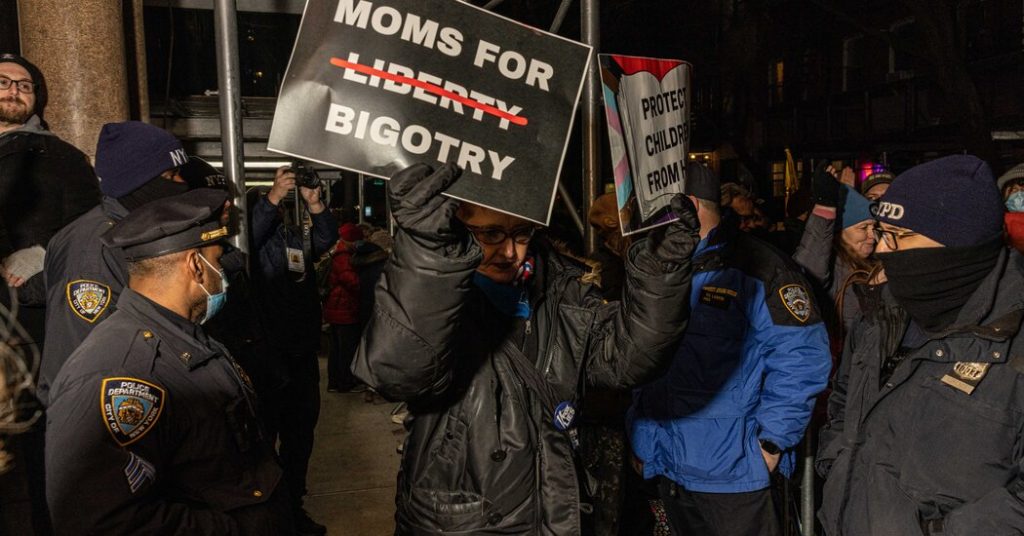In recent months, New York City has seen increased tensions and aggression surrounding education issues, reflecting the nation’s growing political divide. Parents are engaging in heated debates over issues like race, transgender rights in sports, and curriculum content. Some incidents have escalated to the point of police involvement and harassment complaints. These conflicts are occurring across a wider range of parent councils and neighborhoods in the city, presenting a challenge for the administration led by schools chancellor David C. Banks.
Families in District 2 of Manhattan have been particularly vocal, debating topics such as gender guidelines in sports and diversity in curriculum. The district recently passed a proposal to review the gender guidelines, sparking controversy and accusations of neglecting the well-being of students. This move was led by parent leader Maud Maron, who has faced criticism from school officials for her rhetoric. The battles in District 2 highlight the broader issue of parental activism and its impact on education policies in New York City.
Similar conflicts have emerged in District 14 in Brooklyn, where parent leaders have taken stances on issues like the Israel-Hamas conflict. Some parents have faced threats for their political views, while others have filed lawsuits over council policies. Students have also joined the fray, calling for the removal of controversial parent leaders. The charged environment in New York City reflects a broader trend of political polarization, fueled by recent events like school closures during the pandemic.
The clashes have raised questions about the role of officials in managing parent behavior. While some, like teachers’ union president Michael Mulgrew, urge officials to take action against harmful rhetoric, others caution against removing elected parent leaders. Parents like Gavin Healy in District 2 are calling for more intervention from the Department of Education. The battles over curriculum content, diversity, and parental activism are prompting a reevaluation of how education policy is shaped in the city.
New York’s recent chancellors have encouraged schools to expand teaching on identity and discrimination, leading to dissent in some neighborhoods. The recent discovery of discarded books on topics like Native American history and LGBTQ+ characters in a Staten Island school has sparked controversy. Chancellor Banks has emphasized the importance of teaching diverse stories and black history, despite opposition. As the State Legislature considers renewing mayoral control of schools, the ongoing parent fights could have broader implications for education policy in New York City.
Amidst the backdrop of national political tensions, education conflicts in New York City are likely to escalate in the coming months. State lawmakers are debating the potential role of elected school boards in making policy decisions, which could impact the current dynamics of parent councils. Voter turnout in parent council elections is low, but could increase if the stakes become higher. With the upcoming presidential election, the intersection of education issues and national politics is expected to intensify, posing further challenges for school administration and officials in New York City.


